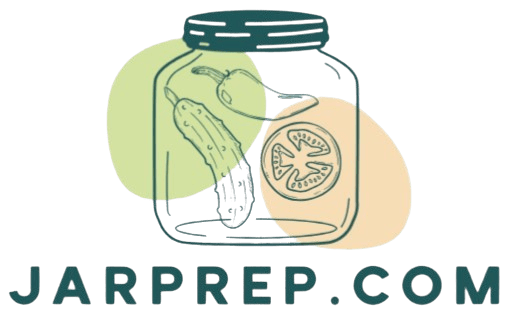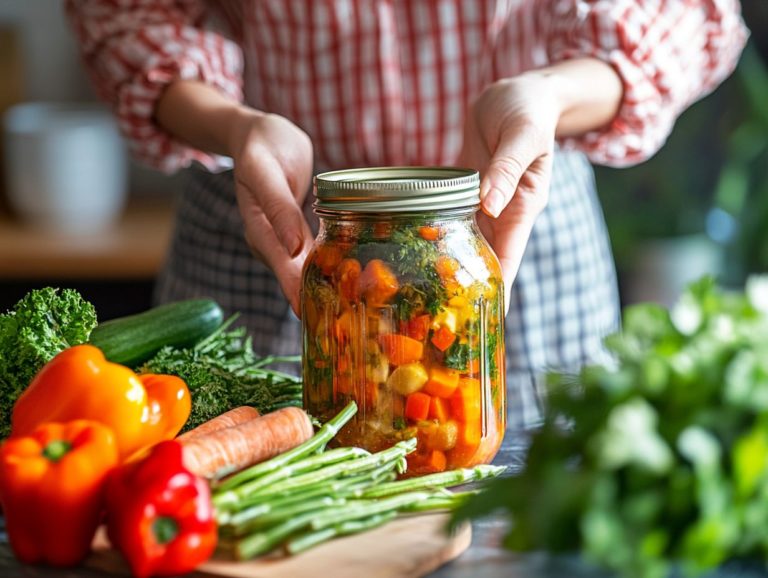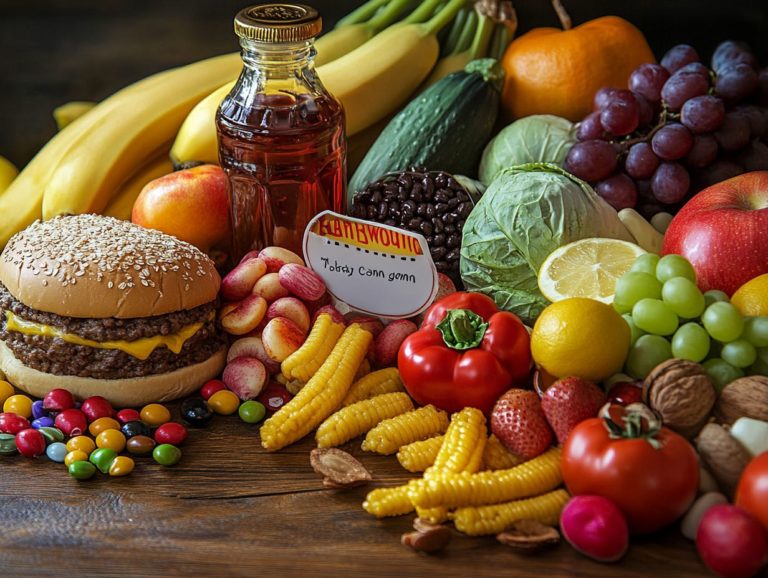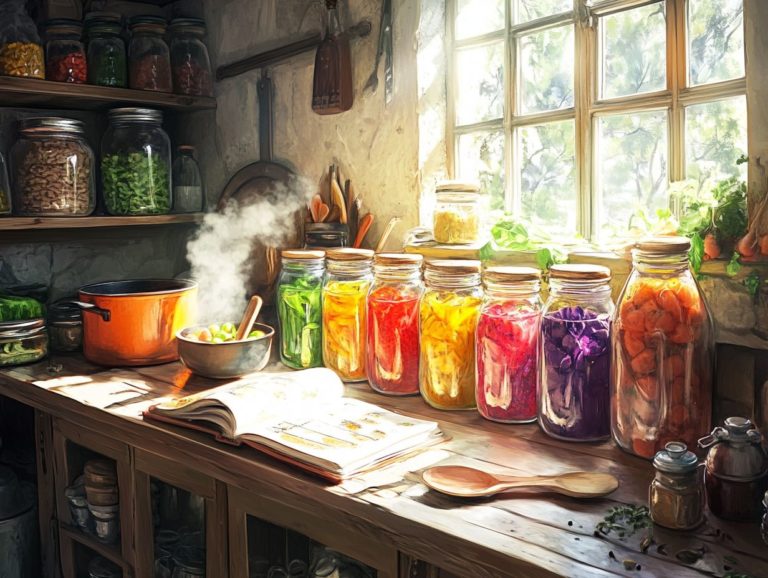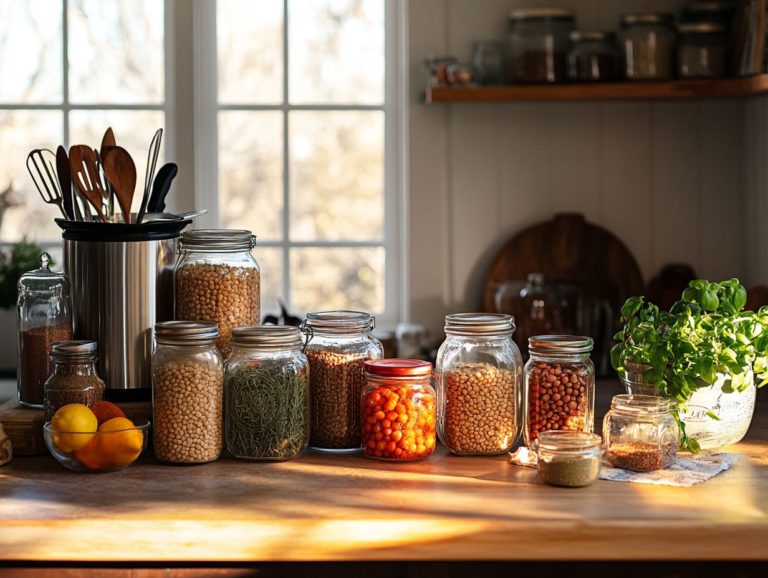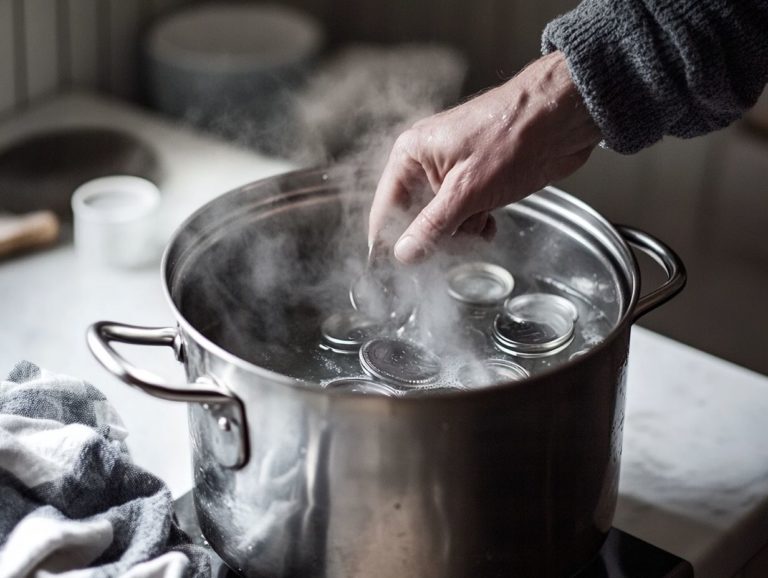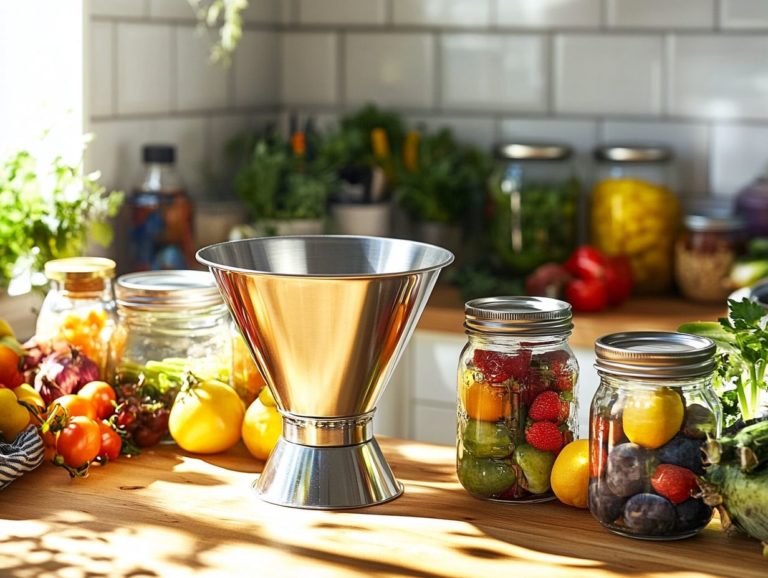Can I Canning Carbonated Beverages?
Canning carbonated beverages is a captivating subject that beautifully intertwines science with practicality in the beverage industry. This method not only preserves the freshness and quality of your drinks but also presents certain risks that every enthusiast should consider.
You will delve into the benefits of beverage canning and uncover potential contamination hazards. This guide provides the essentials for safely canning your carbonated creations.
We will also explore other preservation methods that might suit your preferences. Whether you re a dedicated home brewer or simply curious, there’s valuable insight here for you.
Contents
- Key Takeaways:
- Understanding Canning Carbonated Beverages
- Benefits of Canning Carbonated Beverages
- Potential Risks of Canning Carbonated Beverages
- How to Safely Can Carbonated Beverages
- Alternatives to Canning Carbonated Beverages
- Frequently Asked Questions
- Can I can carbonated beverages at home?
- What equipment do I need to can carbonated beverages?
- Do I need to add anything to my carbonated beverages before canning them?
- What safety precautions should I take when canning carbonated beverages?
- How long can I store canned carbonated beverages and soft drinks?
- Can I can carbonated beverages and hard seltzer without a pressure canner?
Key Takeaways:
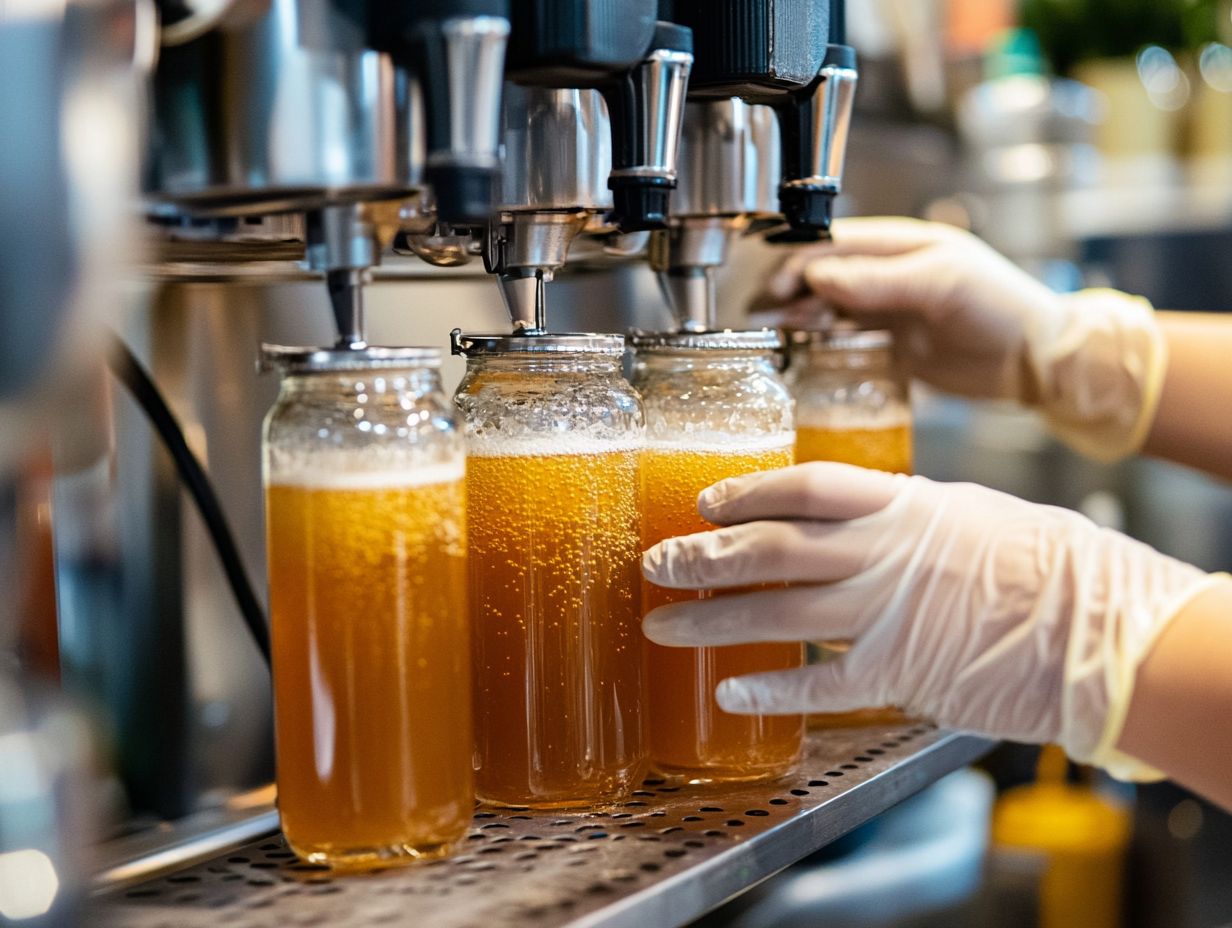
Understanding Canning Carbonated Beverages
Grasping the intricacies of the canning process for carbonated beverages is essential in the beverage industry, especially when it comes to maintaining the quality and freshness of soft drinks like soda water and hard seltzer.
Canning isn’t merely a packaging method; it s a careful process that demands precision in both machinery and quality control. Beverage makers often rely on skilled canning specialists to manage the filling of cans, secure the lids, and ensure that each batch adheres to stringent quality standards. All this is done to guarantee you a satisfying experience with every sip.
What is Canning and Why is it Used for Carbonated Beverages?
Canning is an artful process where beverages are sealed in aluminum cans, crafted specifically to preserve the fizz of carbonated drinks. This method not only extends shelf life but also maintains the unique flavor profile that you expect.
By effectively keeping out light and oxygen two elements that can compromise taste and nutritional value over time you can enjoy your favorite beverages at their best. Manufacturers carefully formulate their drinks to ensure they are not only refreshing but also packed with essential vitamins and minerals, along with that delightful carbonation.
The canning process is backed by rigorous quality control measures, including regular testing for integrity. After all, any defect could lead to a disappointing loss of carbonation or potential contamination.
Ultimately, a successful canning operation marries precise beverage formulation with meticulous quality assurance, enhancing your overall drinking experience while ensuring safety and freshness.
Benefits of Canning Carbonated Beverages
Canning carbonated beverages presents numerous noteworthy advantages that cater to both manufacturers and consumers. This method not only preserves freshness but also enhances shelf appeal, aligning perfectly with current consumer behavior trends in beverage consumption.
Preserving Freshness and Quality
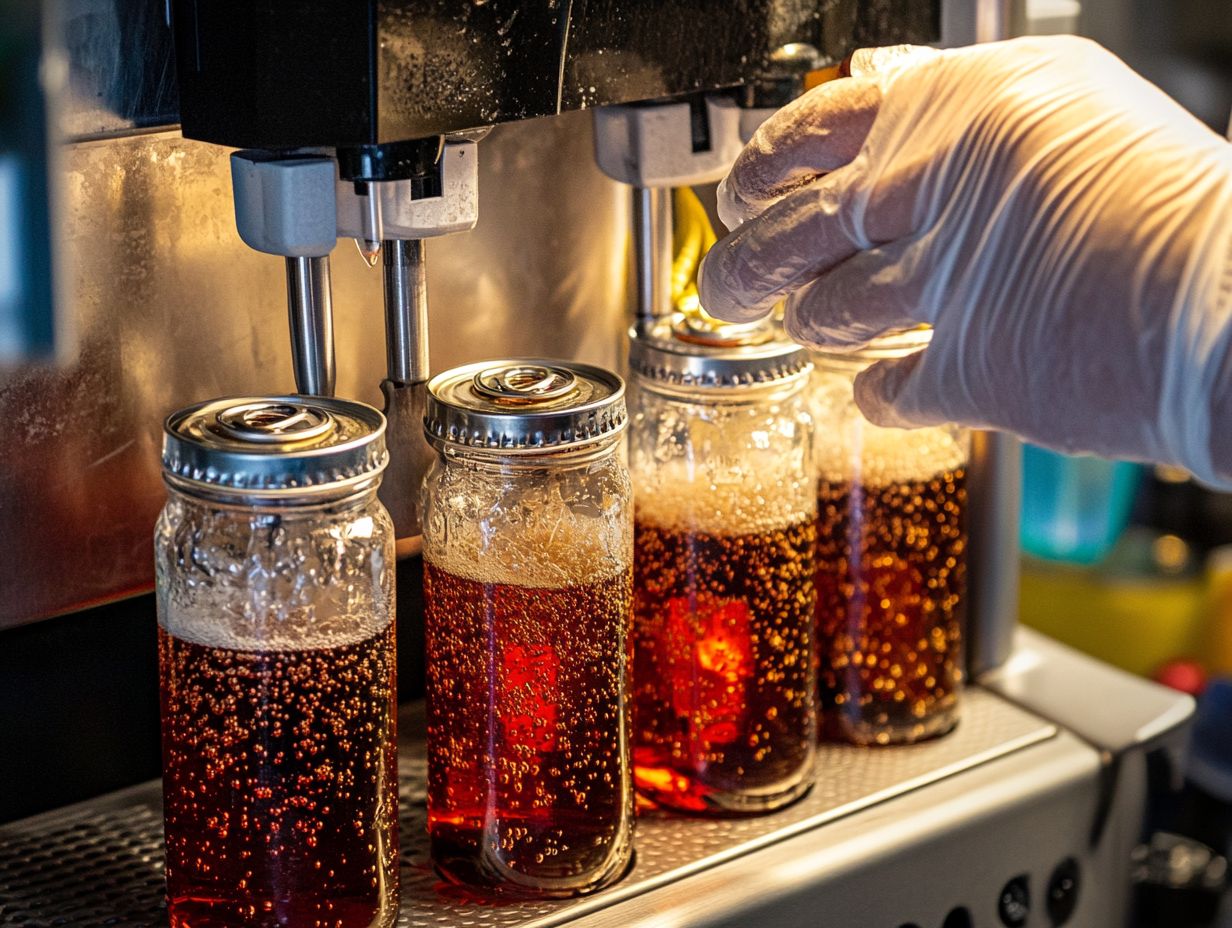
One of the foremost advantages of canning carbonated beverages lies in its ability to preserve freshness and overall quality. This is thanks to aluminum cans that effectively shield against external elements.
These lightweight containers do more than just hold your drink; they block light and oxygen, both notorious for degrading flavor and compromising carbonation. They create a nearly airtight barrier, ensuring that the fizz stays lively and the taste remains consistent from your first sip to the very last.
Stringent quality control measures are essential throughout the production process. By meticulously monitoring aspects like can integrity and content consistency, manufacturers can guarantee that the final product meets and surpasses expectations. This delivers a refreshing experience that retains the intended flavor profile and optimal carbonation levels.
Act now to ensure your drinks stay fresh and flavorful! Consider trying canning for yourself, or seek more information based on your interests.
Potential Risks of Canning Carbonated Beverages
Canning carbonated beverages has many advantages. However, it also comes with risks that can lead to contamination and spoilage if not managed properly, especially when considering options like canning homemade salsa.
Prioritizing quality control procedures is essential to safeguard the integrity of your products.
Contamination and Spoilage Concerns
Contamination and spoilage pose significant concerns during the canning process. Implement strict quality control measures to keep beverage containers intact and ensure safety.
Multiple types of contamination can occur. For instance, microbial growth from bacteria or yeast can thrive in unsterilized environments.
Chemical contamination can also happen when substances leach from the canning materials. These issues can threaten both health and beverage quality.
To mitigate these risks, adopt best practices in hygiene, maintain temperature control, and conduct regular inspections. This commitment ensures consumers receive a safe and enjoyable beverage every time.
How to Safely Can Carbonated Beverages
Safely canning carbonated beverages demands a carefully crafted step-by-step process. Additionally, it’s important to consider canning foods with high sugar content, as effective quality control measures must be woven into every phase of the canning journey. This careful approach is vital for delivering top-quality beverages.
Step-by-Step Process and Tips
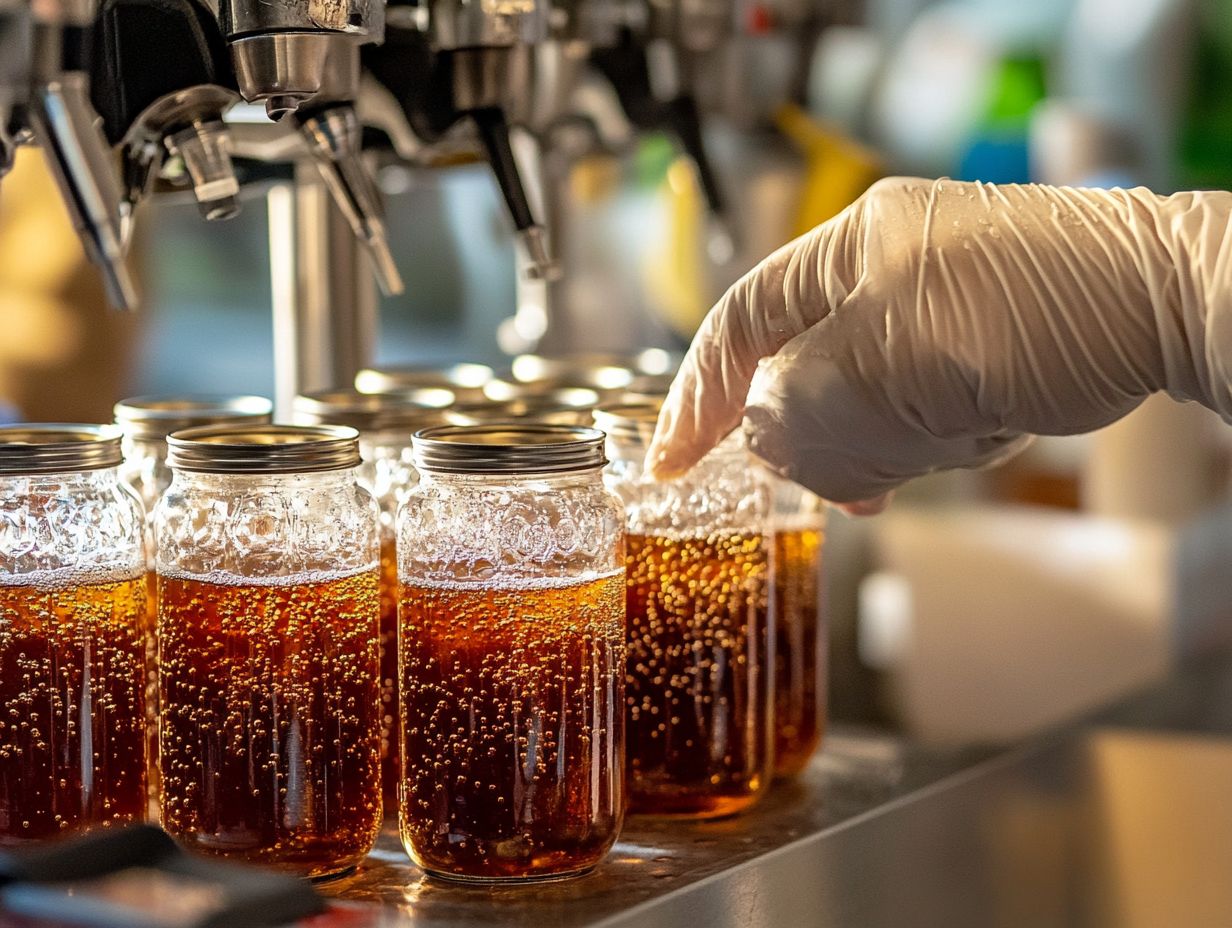
The canning process unfolds in several critical stages, each designed to elevate quality. It begins at the formulation stage, where precise ingredient measurements are essential for achieving the perfect flavor profile and carbonation level.
Once you ve mixed the beverage, it moves to pasteurization, typically using high-temperature short-time (HTST) methods. This step is crucial for eliminating harmful microorganisms while preserving the delightful taste.
Next is the filling process, where an efficient system transfers the beverage into cans while minimizing exposure to oxygen oxygen is the enemy of freshness.
After filling, the sealing process uses specialized equipment to create an airtight seal, guarding against contamination. Throughout these stages, rely on quality markers such as pH level (acidity), carbonation pressure, and fill heights to verify safety and consistency.
This attention to detail not only safeguards the product but also enhances the overall consumer experience, ensuring that every sip is as enjoyable as intended.
Alternatives to Canning Carbonated Beverages
While canning is a favored option for packaging carbonated beverages, numerous effective alternatives can equally preserve the quality and freshness of soft drinks, hard seltzers, and other effervescent choices.
Exploring Other Preservation Methods
Exploring various preservation methods opens up a world of possibilities, including bottling and kegging, each with distinct implications for your preferences and product quality.
Bottling caters to those who value convenience and portability, making it perfect for on-the-go lifestyles. Kegging, on the other hand, targets a niche audience that cherishes the freshness and social experience of draft beverages.
Consumers increasingly lean toward premium options that promise superior taste. This trend encourages producers to rethink and innovate their packaging techniques.
There s also a noticeable surge in demand for sustainable practices, with eco-friendly bottling options capturing the attention of environmentally conscious consumers. This shift impacts how beverages are preserved and shapes market strategies designed to align with evolving consumer preferences.
Frequently Asked Questions
Can I can carbonated beverages at home?
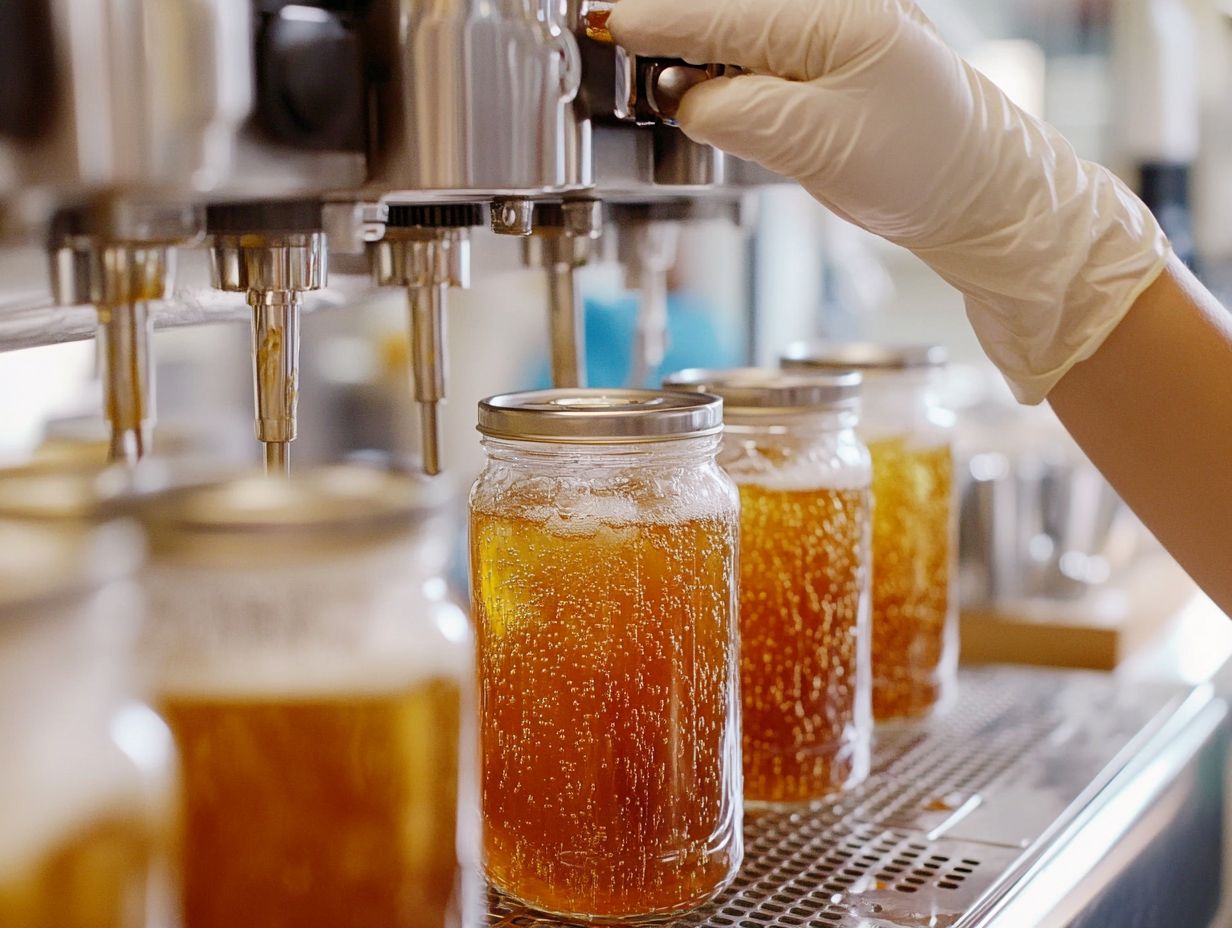
Yes, you can can carbonated beverages at home. Just use the right equipment and techniques.
What equipment do I need to can carbonated beverages?
You will need a pressure canner, canning jars, lids, and bands. These are specifically designed for canning carbonated drinks.
Do I need to add anything to my carbonated beverages before canning them?
Yes, add sugar and yeast to ensure proper carbonation. This helps the drink stay bubbly after canning.
What safety precautions should I take when canning carbonated beverages?
Always follow proper canning guidelines. Ensure your equipment is clean and in good condition.
How long can I store canned carbonated beverages and soft drinks?
Canned correctly and stored in a cool, dark place, these drinks can last up to a year. For the best taste, consume them within 6 months.
Can I can carbonated beverages and hard seltzer without a pressure canner?
No, using a water bath canner is unsafe. A pressure canner is essential to seal the jars and prevent bacteria growth.
